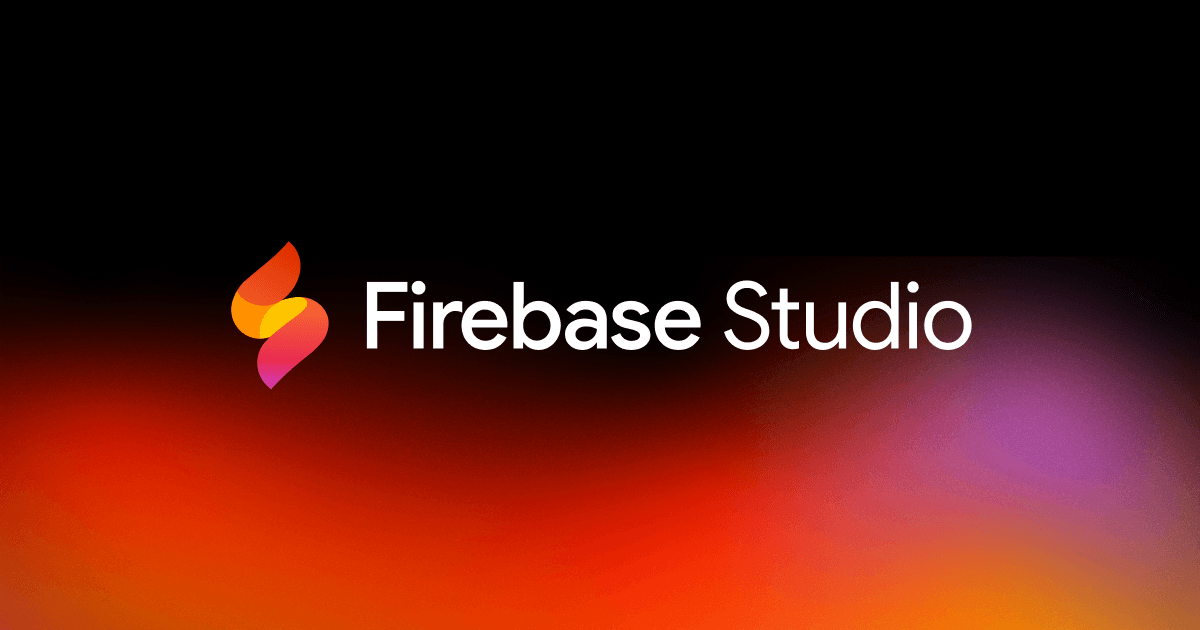We Tested Firebase Studio Powered by Google AI Studio & Vibe Coding - Here's What We Found

Anuj Kothari
9 min readApril 22
At Tunica Tech, we've always believed in building solutions that truly resonate with our clients' needs. Interestingly, our approach shares a core philosophy with a seemingly distant field: game design. The concept of iterative design, fundamental to crafting engaging games, has profoundly influenced how we develop and deliver our IT services, especially when working with cutting-edge tools like Google AI Studio and Firebase Studio.
The Iterative Heart: Building Like Game Developers
The research highlights that game development rarely follows a straight line. Instead, it's a cycle of creating, testing, and refining – a process of continuous improvement. Think about it: a game isn't perfect on day one. Developers build prototypes, get feedback from players, and then iterate based on that experience. This resonated deeply with our experiences at Tunica Tech. We've found that complex IT solutions, much like intricate games, benefit immensely from this cyclical approach.
Our Experience: From Idea to Impact with Iteration
Just like the development of "Ori and the Will of the Wisps," where level design went through numerous blockouts and refinements, our projects at Tunica Tech evolve through iterations. We don't aim for perfection from the outset. Instead, we focus on building a functional core, getting it in front of our clients early, and then enhancing it based on their feedback and our ongoing analysis.
What We Liked: Early Feedback and Reduced Risk
One of the biggest advantages we've experienced with this iterative approach, particularly when exploring new technologies like Google AI Studio, is the ability to gather feedback early. By building working prototypes using platforms like Firebase Studio, we can quickly validate our assumptions and ensure we're on the right track. This early feedback loop significantly reduces the risk of investing heavily in a solution that doesn't quite hit the mark. It's like playtesting a game level with simple shapes before committing to final graphics – you catch fundamental flaws early.
What Can Be Better: Managing Scope and Expectations
While the iterative process is powerful, it requires careful management of scope and client expectations. It's crucial to clearly define the goals of each iteration and ensure that all stakeholders understand that the final product will evolve over several cycles. Sometimes, the desire to incorporate every piece of feedback immediately can lead to scope creep, so prioritizing and planning each iteration is key.
The Tech in Action: How We Leverage Google AI Studio and Firebase Studio
Consider a recent project where we were building a custom analytics dashboard for a client. Instead of spending months developing a comprehensive solution behind closed doors, we adopted an iterative approach, leveraging the rapid prototyping capabilities of Firebase Studio.
- Iteration 1: We built a basic dashboard showcasing key metrics identified in our initial discussions. This allowed the client to get a tangible feel for the solution early on.
- Iteration 2: Based on their feedback, we integrated more granular data views and added basic filtering functionalities, again using Firebase Studio for quick deployment and testing.
- Iteration 3: We then explored incorporating AI-powered insights using Google AI Studio. We experimented with different models to identify trends and anomalies in the data, presenting these findings in the next iteration of the dashboard.
This iterative process allowed us to continuously refine the dashboard, ensuring it truly met the client's evolving needs and provided actionable insights.
Business Impact: Agility and Client Satisfaction
For business owners and CXOs, the benefits of this iterative approach are clear:
- Reduced Risk: Early validation minimizes the chances of costly rework.
- Increased Agility: We can adapt quickly to changing requirements and market dynamics.
- Higher Client Satisfaction: Continuous feedback ensures the final solution aligns perfectly with their needs.
- Faster Time-to-Value: Core functionalities are delivered early, providing quicker returns on investment.
Embracing the Cycle with Google Vibe Coding
While not a specific product, the spirit of Google Vibe Coding – fostering collaboration and rapid development – aligns perfectly with our iterative philosophy. By embracing tools and methodologies that encourage quick experimentation and feedback, we can deliver more robust and impactful IT solutions.
Just like a game evolves through playtesting and refinement, our IT services at Tunica Tech continuously improve through iteration. By embracing this cyclical nature of creation, and leveraging powerful platforms like Firebase Studio and exploring the potential of Google AI Studio, we ensure that our clients receive solutions that are not only technically sound but also perfectly tailored to their business objectives.
- Quick Links
- Homepage
- Projects
- About Us
- What we do
- Careers
- Services
- Product Dev
- MarTech
- Data Analytics
- Our Products
- TrakNeo
- pURL
- Breathe India
- Arivu
- LIFI
